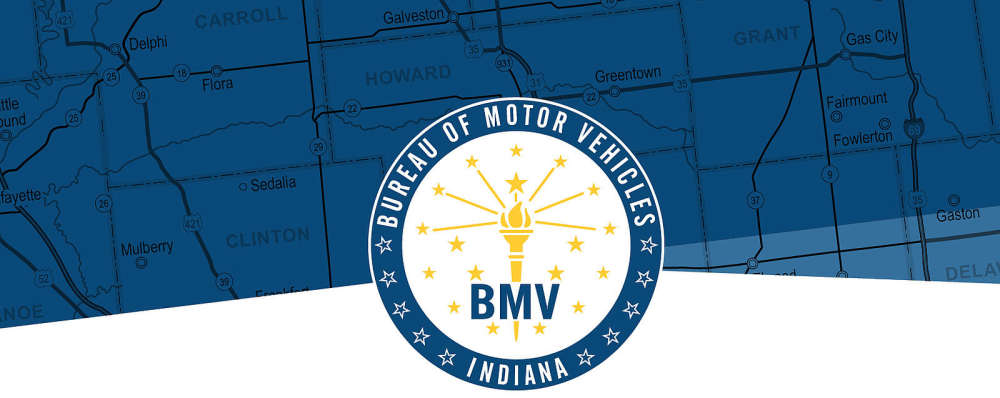
Marshall County Auditor Angie Birchmeier would like to make the taxpayers aware of changes in deductions, exemptions, and credits that the Indiana General Assembly recently approved. These changes will take effect for the 2025 payable 2026 property taxes, with increases/decreases occurring over the next five years. With so many changes that the State Legislators made during the past session, the auditor is giving a brief update explaining the deductions, credits, and exemptions that will be in effect. She encourages anyone with questions to please reach out to the Auditor’s office.
The Marshall County Auditor’s office has been working diligently with their tax software provider, the Department of Local Government Finance, the State Board of Accounts, and the Association of Indiana Counties to ensure the county is compliant with the new statutes. The information is a high-level overview of some of those changes that taxpayers will see for the 2025 payable 2026 property tax cycle.
The Over 65 Deduction has transitioned to the new Over 65 Credit. The maximum amount of the credit is $150, which will be applied to the property tax owner’s tax liability instead of as a reduction of the assessed value of the property. Anyone currently receiving this benefit will not need to do anything, as the Auditor’s office has opted to automatically transfer individuals currently receiving the Over 65 Deduction to the new credit.
The Over 65 Circuit Breaker Credit has been modified to increase the applicant’s federal adjusted gross income and removes the assessed value limit that was previously applied to the credit. Unlike the Over 65 Credit, there will be an adjustment annually to the income threshold by an amount equal to the cost-of-living increase applied for Social Security benefits for the preceding year.
The Blind/Disabled Deduction is also converted to the Blind/Disabled Credit of $125 that will be applied to the property tax owner’s tax liability instead of as a reduction to the assessed value of the property. The newly instated Blind/Disabled Credit does not have an income limitation, and the Auditor’s office has opted to automatically transfer individuals currently receiving the Blind/Disabled Deduction to the new credit. The income limitation has been removed from the new credit as well.
The Veterans Deduction will remain the same for 2025, payable in 2026. During the flurry of bills being approved by the Indiana General Assembly, there was some confusion surrounding this deduction. In the end, the bill signed into law by Governor Braun remains the status quo.
Several deductions have now expired. The Deduction for surviving spouses of World War 1 veterans, deduction for rehabilitation of residential real property, deduction for solar energy heating or cooling systems, deduction for solar power devices, deduction for resource recovery systems, deduction for wind power devices, deduction for hydroelectric power devices, deduction for geothermal devices, deduction for fertilizer and pesticide storage, deduction for personal property held as inventory are no longer in effect. Anyone receiving those deductions will see those automatically removed for the 2025 payable 2026 property tax cycle.
There will be a phase-out of the Homestead Standard Deduction over the next 5 years, but there will be an increase to the Supplemental Homestead Deduction occurring at the same time. Currently, a property that is owner-occupied is eligible for a homestead deduction in the amount of the lesser of 60% of the assessed value or $48,000. For 2025 payable 2026, the standard deduction will remain unchanged. However, for 2026 payable 2027, it will decrease to $40,000 and continue to decrease.
At the same time, the Supplemental Homestead Deduction will increase. For 2025, payable in 2026, the Supplemental Homestead will be a 40% reduction after the Homestead Standard is applied. For 2026, payable in 2027, the Supplemental Homestead will be 46% after the Homestead Standard is applied.
New legislation also approved a Supplemental Homestead Credit of a maximum of $300. This will be effective for the 2025 payable 2026 property tax cycle and will be applied to the property owners' tax liability. As with the other Homestead Credit/Deductions, there are residency requirements, and it cannot be received on multiple properties.
Properties that fall under the 2% property tax cap, residential property not claimed as a homestead, long-term care properties, and agricultural land will receive a new Circuit Breaker Credit. For 2025, payable in 2026, the credit will be an automatic 6% reduction of the assessed value. That percentage will increase over the next several years, ultimately with a reduction of 33.4%.
With so many changes, the County Auditor would like to encourage anyone who has questions to please reach out to the office.
The Marshall County Building is open to the public from 8:00 am to 4:00 pm Monday through Friday.
Residents are welcome to call 574-935-8555 with any questions or concerns.


 New law in effect Jan. 1: Update your vehicle’s color on your registration
New law in effect Jan. 1: Update your vehicle’s color on your registration
 Marshall County EMA: Special Weather Statement
Marshall County EMA: Special Weather Statement
 Secretary Rollins announces new priorities for research and development in 2026
Secretary Rollins announces new priorities for research and development in 2026
 Governor Braun leverages Indiana Workforce Development Board to grow jobs and wages for Hoosier workers
Governor Braun leverages Indiana Workforce Development Board to grow jobs and wages for Hoosier workers
 Board and commission appointments for 2026 by Mayor Listenberger and City Council
Board and commission appointments for 2026 by Mayor Listenberger and City Council
 Marshall County Public Defender Board approves contracts with public defenders in state program
Marshall County Public Defender Board approves contracts with public defenders in state program
 Free Anhydrous Ammonia Safety Training for First Responders
Free Anhydrous Ammonia Safety Training for First Responders
 57-year-old Plymouth man arrested on child solicitation charges
57-year-old Plymouth man arrested on child solicitation charges




